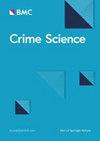安全对消费者来说值多少钱?调查安全物联网设备的支付意愿
IF 3.1
Q1 CRIMINOLOGY & PENOLOGY
引用次数: 0
摘要
物联网(IoT)被认为是下一场技术革命。物联网设备包括曾经与互联网连接的日常用品,如智能锁和智能冰箱,也包括家庭助理等新型设备。然而,虽然这种互联性的增强带来了相当大的好处,但它可能也确实增加了人们面临的犯罪风险。尤其是大多数设备在开发时都没有考虑到安全问题。造成这种情况的一个原因是,制造商没有什么动力在设计上保证设备的安全性,而且这样做的成本也不高。本文的主要目的是估算消费者在多大程度上愿意为提高联网产品的安全性付费。第二个目的是研究消费者是否会因接触安全相关信息而产生付费意愿。通过实验设计和或然估价法,我们发现人们愿意为改进的安全性付费,而且对于某些设备,如果他们在表示付费意愿之前接触过有关安全性的信息,付费意愿就会增加。本文讨论了我们的发现对行业和安全设计议程的影响。本文章由计算机程序翻译,如有差异,请以英文原文为准。
What is security worth to consumers? Investigating willingness to pay for secure Internet of Things devices
The Internet of Things (IoT) is considered the next technological revolution. IoT devices include once everyday objects that are now internet connected, such as smart locks and smart fridges, but also new types of devices to include home assistants. However, while this increased interconnectivity brings considerable benefits, it can and does increase people’s exposure to crime risk. This is particularly the case as most devices are developed without security in mind. One reason for this is that there is little incentive for manufacturers to make devices secure by design, and the costs of so doing do not encourage it. The principle aim of the current paper was to estimate the extent to which consumers are willing to pay for improved security in internet connected products. The second aim was to examine whether this is conditioned by their exposure to security-related information. Using an experimental design, and a contingent valuation method, we find that people are willing to pay for improved security and that for some devices, this increases if they are exposed to information about security prior to stating their willingness to pay. The implications of our findings for industry and the secure by design agenda are discussed.
求助全文
通过发布文献求助,成功后即可免费获取论文全文。
去求助
来源期刊

Crime Science
Social Sciences-Cultural Studies
CiteScore
11.90
自引率
8.20%
发文量
12
审稿时长
13 weeks
期刊介绍:
Crime Science is an international, interdisciplinary, peer-reviewed journal with an applied focus. The journal''s main focus is on research articles and systematic reviews that reflect the growing cooperation among a variety of fields, including environmental criminology, economics, engineering, geography, public health, psychology, statistics and urban planning, on improving the detection, prevention and understanding of crime and disorder. Crime Science will publish theoretical articles that are relevant to the field, for example, approaches that integrate theories from different disciplines. The goal of the journal is to broaden the scientific base for the understanding, analysis and control of crime and disorder. It is aimed at researchers, practitioners and policy-makers with an interest in crime reduction. It will also publish short contributions on timely topics including crime patterns, technological advances for detection and prevention, and analytical techniques, and on the crime reduction applications of research from a wide range of fields. Crime Science publishes research articles, systematic reviews, short contributions and theoretical articles. While Crime Science uses the APA reference style, the journal welcomes submissions using alternative reference styles on a case-by-case basis.
 求助内容:
求助内容: 应助结果提醒方式:
应助结果提醒方式:


